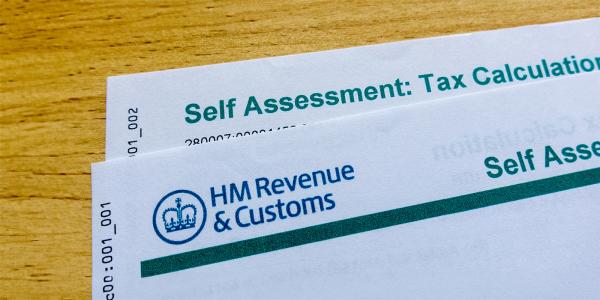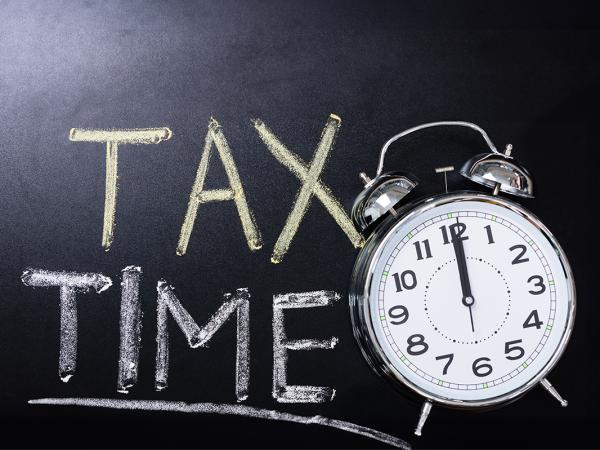Self assessment and tax returns
Self assessment is a way of reporting your taxable income and paying tax.

Content on this page:
Introduction
A UK tax year runs from 6 April to the following 5 April. Therefore, the 2024/25 tax year starts on 6 April 2024 and finishes on 5 April 2025.
Under self assessment, you file a tax return for a tax year which includes all your taxable income for the year – including sources from which you have had tax deducted already. If you have any capital gains, you may need to report these too. You also claim any allowances or reliefs (such as for employment expenses) that you are entitled to on the tax return.
You then ‘self-assess’ what you owe by calculating what your tax position is for the tax year and pay any further amounts due to HMRC. This can include income tax, capital gains tax, class 2 and 4 National Insurance contributions (if you are self-employed) and student loan repayments. If you file your tax return online using HMRC’s online portal, HMRC will calculate what you owe for you. If your self assessment show you have paid too much tax for the tax year, HMRC will repay you what you have overpaid. See our page on tax refunds for more information on this.
Many people in the UK pay tax through Pay As You Earn and are not required to submit a tax return. You may, however, need to complete a tax return if HMRC ask you to or if you owe tax on other sources of income – such as self-employed profits, the state pension, or foreign income.
It is your responsibility to tell HMRC if you need to complete a tax return. See our page Who has to complete a tax return.
You must file a tax return if HMRC ask you to, unless they withdraw that requirement.
Overview of dates and deadlines
If you need to file self assessment tax returns each year, there are several important dates throughout the year by which you may need to take some action. We give an overview of these dates below. Not all of the dates listed below may apply to you.
If the tax year in question is 2024/25, then the 31 January during the tax year is 31 January 2025, the 5 October following the end of the tax year is 5 October 2025 and the 31 January following the end of the tax year is 31 January 2026.
| 31 January (during the tax year) |
If you have to make payments on account, the first payment on account for the tax year ending the following 5 April is due. Not everyone has to pay these payments on account. For example, the first payment on account for the 2024/25 tax year is due by 31 January 2025. |
| April (after the end of the tax year) |
The tax year ends on 5 April and shortly after this date HMRC may send you a notice advising that you must file a tax return for the tax year just ended. |
| 31 July (following the end of the tax year) |
If you have to make payments on account, the second payment on account for the tax year ending the previous 5 April is normally due. For example, the second payment on account for the 2024/25 tax year is due by 31 July 2025. Not everyone has to pay these payments on account. |
| 5 October (following the end of the tax year) |
If you need to file a tax return for a year but HMRC has not asked you to do so, you must notify HMRC by 5 October. |
| 31 October (following the end of the tax year) |
If you are sending HMRC a paper tax return, this must be submitted by 31 October. If you send the form after this date there will be a penalty even if you have no tax to pay. You may be able to appeal against the penalty if you have a reasonable excuse for the late filing. |
| 30 December (following the end of the tax year) |
If you file your tax return online, you will need to submit it by this date if you want HMRC to collect the tax through your tax code. This may be possible where you owe less than £3,000. If your income is more than £30,000, even more tax may be collected through your tax code. |
| 31 January (following the end of the tax year) |
All tax returns filed online must usually be submitted on or before this date. If you miss this deadline a penalty will be charged even if you have no tax to pay or have already paid all of the tax you owe. You may be able to appeal against the penalty if you have a reasonable excuse for the late filing. Your balancing payment of tax is also due on 31 January following the end of the tax year. For example, your balancing payment for 2024/25 is due on 31 January 2026. You may also have a payment on account to make at this time. For example, you may have a payment on account to pay for the 2025/26 tax year on 31 January 2026. Not everyone has to make payments on account. |
| 31 January (following the end of the tax year) + 1 year |
If you become aware that an entry on your paper or online tax return is incorrect you can amend that return up to 12 months after 31 January following the end of the tax year. This deadline applies even if the return was filed late. However, it is extended in the case where the notice to file a return is given after 31 October following the end of the tax year. For example, if you need to amend your 2023/24 return you have until 31 January 2026 to make the amendment. This applies whether you filed using a paper return or completed it online. |
Methods of filing a tax return
A self assessment tax return can either be filed electronically (online) or on paper. Usually, you can choose whether you file online or on paper.
The blank SA100 tax return may be available to be downloaded from GOV.UK, or you can call HMRC to request a copy. If you have filed on paper before, then you might receive a paper tax return for 2023/24 from HMRC in the post.
If you file your tax return online, you usually have longer to do it. You can file online using HMRC’s online portal, or using third-party commercial software.
However, certain taxpayers cannot use HMRC’s online portal because of software limitations. This includes anyone who needs to file the SA109 Residence, remittance basis, etc. supplementary pages, or if you had taxable trust or estate income. If this applies to you, you will need to either use third-party commercial software, file on paper, or get an agent to file your tax return for you.
In limited circumstances, some taxpayers cannot file their tax return electronically at all and therefore must file a paper return.
HMRC may also issue a short tax return, on paper, in some cases. You cannot download the short tax return. You can only use the short tax return if HMRC ask you to. If you are not issued with an actual tax return but instead you are sent a notice requiring you to complete a tax return, you can request that a short tax return be issued to you, if appropriate. Filing dates are the same as for the full self assessment return.
Getting help
If you get a tax return, there is information on our website which may help you. You can also contact HMRC for help. If you are concerned about completing the form, you can contact HMRC.
Alternatively, see our Getting help page for details of the tax charities who may be able to offer free assistance.



